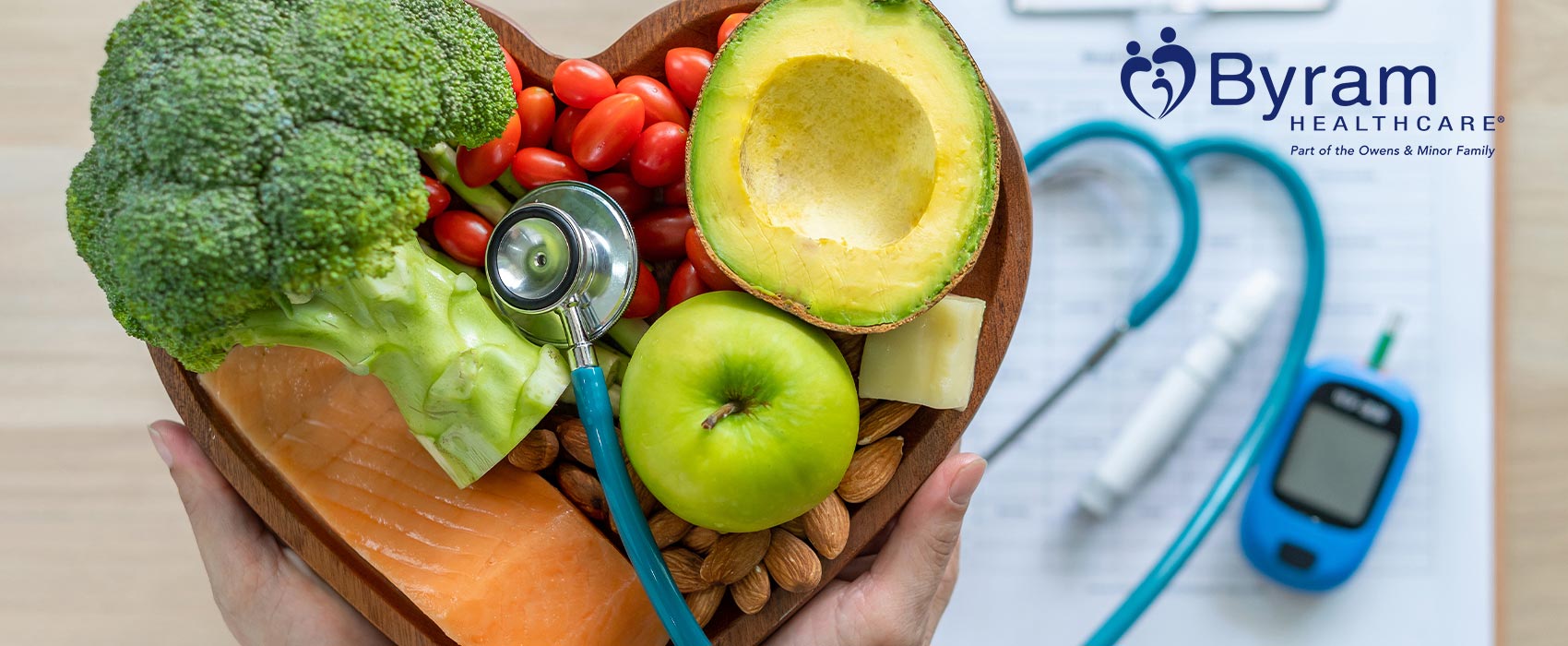Introduction

The relationship between chicken consumption and blood sugar levels has been a topic of interest for individuals concerned about their dietary impact. Many people with diabetes or those aiming to maintain stable blood sugar levels wonder whether eating chicken can raise blood sugar levels. In this article, we will explore the nutritional value of chicken, its impact on blood sugar levels, the effects of cooking methods, and how it compares to other protein sources. By understanding these factors, individuals can make informed choices when incorporating chicken into their diets for blood sugar control.
The Relationship Between Chicken Consumption And Blood Sugar Levels
Research has shown that there is no direct relationship between chicken consumption and significant increases in blood sugar levels. Chicken is a low-carbohydrate food, and its protein content can help regulate blood sugar when consumed as part of a balanced diet. However, it is important to consider other factors such as portion sizes and preparation methods. Incorporating chicken into a mixed meal with other nutrient-dense foods can contribute to maintaining stable blood sugar levels. Therefore, individuals concerned about their blood sugar can include chicken as part of their dietary choices without significant impact on their blood sugar levels.
Nutritional Value Of Chicken
Chicken is not only delicious but also packed with essential nutrients. It is a great source of high-quality protein, which is crucial for building and repairing tissues. Chicken is also rich in vitamins and minerals, such as vitamin B6, vitamin B12, zinc, and iron. These nutrients play key roles in maintaining optimal health and supporting various bodily functions. Additionally, chicken is low in fat, especially if you opt for skinless cuts, making it a healthy choice for those watching their calorie intake. Including chicken in your diet can provide you with a range of nutrients while keeping your blood sugar levels in check.
Protein Content In Chicken

Chicken is a great source of high-quality protein, making it an excellent choice for those looking to include protein in their diets. A 3-ounce serving of chicken breast provides about 26 grams of protein, which is essential for building and repairing tissues in the body. Protein is also known to have a minimal impact on blood sugar levels compared to carbohydrates. Incorporating lean chicken into meals can help stabilize blood sugar levels and promote overall health. Additionally, chicken is low in fat, especially if you opt for skinless cuts, making it a nutritious option for individuals watching their calorie intake.
Impact Of Chicken On Blood Sugar Levels
Chicken has a minimal impact on blood sugar levels due to its low carbohydrate content. The protein in chicken can actually help regulate blood sugar levels by slowing down the absorption of glucose in the bloodstream. When consumed as part of a balanced meal that includes vegetables and whole grains, chicken can contribute to stable blood sugar levels. However, it is important to consider the cooking methods and portion sizes, as certain preparations such as breaded or fried chicken can result in higher glycemic responses. Overall, incorporating chicken into a well-rounded diet can support blood sugar control.
Cooking Methods And Blood Sugar
Cooking methods can have an impact on the glycemic index of chicken, which measures how quickly a food raises blood sugar levels. Certain cooking methods, such as frying or breading chicken, can increase its glycemic response and cause a more significant rise in blood sugar. On the other hand, grilling, baking, or steaming chicken can help maintain its low glycemic index and minimize the effect on blood sugar levels. It is important to choose healthier cooking methods to optimize the blood sugar benefits of chicken.
Effect Of Cooking Methods On The Glycemic Index Of Chicken

The cooking method used for chicken can have an impact on its glycemic index (GI), which measures how quickly a food raises blood sugar levels. Certain cooking methods, such as frying or breading chicken, can increase its GI and cause a more significant rise in blood sugar. On the other hand, grilling, baking, or steaming chicken can help maintain its low GI and minimize the effect on blood sugar levels. Therefore, it is important to choose healthier cooking methods, such as grilling or baking, to optimize the blood sugar benefits of chicken.
Best Cooking Practices For Managing Blood Sugar Levels
To manage blood sugar levels effectively, it is important to use cooking methods that promote healthy eating. Here are some best practices to consider:
- Grill or bake chicken instead of frying it. This helps to minimize the addition of unhealthy fats and calories.
- Remove the skin from the chicken before cooking. The skin contains saturated fats that can contribute to high blood sugar levels.
- Marinate chicken with herbs, spices, and vinegar instead of using sugary or high-sodium marinades. This adds flavor without adding unnecessary sugars or sodium.
- Avoid breading chicken or using high-sugar sauces or glazes. Opt for healthier options such as herbs, lemon juice, or low-sodium sauces.
By following these cooking practices, you can enjoy the benefits of chicken while managing your blood sugar levels effectively.
Chicken Vs. Other Protein Sources
When comparing chicken to other protein sources, such as red meat and plant-based proteins, there are a few key differences to consider. Chicken is a lean source of protein, meaning it contains less fat and calories compared to red meat. This can be beneficial for individuals looking to manage their blood sugar levels, as excess fat and calories can contribute to insulin resistance. Additionally, chicken is a complete protein, meaning it contains all essential amino acids that the body needs. Plant-based proteins, on the other hand, may require combining different sources to obtain all essential amino acids. Therefore, incorporating chicken into a balanced diet can provide a convenient and efficient way to meet protein needs while managing blood sugar control.
Comparison Of Chicken With Red Meat And Plant-based Proteins

When comparing chicken to red meat and plant-based proteins, there are a few key differences to consider. Chicken is a lean source of protein, containing less fat and calories compared to red meat. This can be beneficial for blood sugar management as excess fat and calories can contribute to insulin resistance. Additionally, chicken is a complete protein, providing all essential amino acids that the body needs. Plant-based proteins may require combining different sources to obtain all essential amino acids. Therefore, incorporating chicken into a balanced diet can provide a convenient and efficient way to meet protein needs while managing blood sugar control.
How Chicken Consumption Affects Blood Sugar Differently
Chicken consumption affects blood sugar levels differently depending on various factors. The protein content in chicken can help regulate blood sugar levels when consumed as part of a mixed meal. This is especially beneficial for individuals managing diabetes or those aiming to maintain stable blood sugar levels. The low carbohydrate content in chicken prevents a significant spike in blood sugar levels, making it a suitable option for blood sugar control. However, it is important to consider portion sizes and cooking methods, as adding high-fat sauces or breading can increase the overall calorie and fat content, potentially impacting blood sugar levels.
Meal Planning Tips
When meal planning to manage blood sugar levels, consider incorporating lean chicken as a protein source. Aim to include a variety of vegetables, whole grains, and legumes alongside the chicken to ensure a balanced meal. Opt for cooking methods that minimize added fats and oils, such as grilling, baking, or broiling, to maintain the health benefits of chicken. Portion control is crucial, so measure your servings to prevent overeating. Lastly, consult a registered dietitian or healthcare professional to create a personalized meal plan that aligns with your specific dietary needs and blood sugar goals.
Incorporating Chicken Into A Balanced Diet For Blood Sugar Control

Chicken can be a valuable addition to a balanced diet aimed at controlling blood sugar levels. It is important to choose lean cuts, such as skinless chicken breast, to minimize saturated fat intake. To create a balanced meal, combine chicken with a variety of vegetables, whole grains, and legumes. These foods provide essential nutrients and fiber, which can help regulate blood sugar. Be mindful of portion sizes and consider incorporating different cooking methods, such as grilling or baking, to reduce added fat and calories. Consulting a healthcare professional or dietitian can provide personalized guidance on incorporating chicken into a blood sugar-friendly meal plan.
Recipes And Meal Ideas Featuring Chicken
When it comes to incorporating chicken into your meals, the options are endless. Here are a few recipe and meal ideas featuring chicken that can help you maintain stable blood sugar levels.
- Grilled Chicken Salad: Toss grilled chicken breast with a variety of colorful vegetables, such as lettuce, tomatoes, cucumbers, and bell peppers. Add some nuts or seeds for extra crunch and drizzle with a light dressing.
- Chicken Stir-Fry: Sauté chicken breast with a mix of your favorite vegetables, like broccoli, carrots, and snap peas. Season with low-sodium soy sauce and spices for a flavorful and healthy meal.
- Baked Chicken with Roasted Vegetables: Coat chicken breast with a mix of herbs and spices, then bake it alongside a medley of roasted veggies like onions, zucchini, and sweet potatoes.
Remember to keep portion sizes in mind and choose cooking methods that minimize added fats and oils. Enjoy your chicken meals while keeping your blood sugar levels in check.
Conclusion
In conclusion, the impact of chicken consumption on blood sugar levels can vary depending on several factors such as cooking methods and portion sizes. Chicken itself is a lean source of protein and is generally considered a healthy food choice for individuals managing their blood sugar levels. However, it is important to consider the overall balance of one’s diet, including the inclusion of a variety of vegetables, whole grains, and legumes. Incorporating these nutrient-rich foods alongside chicken can help maintain stable blood sugar levels and support overall health. To manage blood sugar effectively, portion sizes and cooking methods should be mindful and aligned with individual dietary needs.
Key Takeaways On The Impact Of Chicken Consumption On Blood Sugar Levels

Chicken consumption does not significantly raise blood sugar levels. In fact, it can help stabilize them due to its high protein content. Opting for skinless chicken and lean cuts can further enhance blood sugar control by reducing saturated fat and calorie intake. However, it is essential to consider other factors such as portion sizes and cooking methods to ensure optimal blood sugar management. By incorporating chicken into a balanced diet, individuals can benefit from its nutrient-rich profile while maintaining stable blood sugar levels.
Additional Resources For Managing Blood Sugar Through Diet
For more information on managing blood sugar through diet, there are several resources available. Consulting a registered dietitian can provide personalized guidance and meal planning strategies tailored to individual needs. Additionally, reputable websites and publications, such as the American Diabetes Association and Mayo Clinic, offer valuable information on blood sugar management and healthy eating. These resources provide tips on portion control, carbohydrate counting, and incorporating a variety of nutrient-rich foods into meals. By utilizing these resources, individuals can further enhance their understanding of blood sugar management and make informed choices when it comes to their diet.
FAQ About Chicken And Blood Sugar Levels
Q: Does eating chicken raise blood sugar levels?
A: Chicken is a lean protein source with minimal impact on blood sugar levels. As long as it’s not breaded or coated in high-sugar sauces, chicken is generally considered a good choice for managing blood sugar.
Q: How does chicken affect blood sugar in comparison to other meats?
A: Compared to fattier cuts of meat or processed meats like sausages, chicken is lower in saturated fats and doesn’t contain carbohydrates that can rapidly spike blood sugar levels. Incorporating chicken into a balanced meal plan can help stabilize blood sugar.
Q: Can the way chicken is prepared affect its impact on blood sugar?
A: Yes, the method of preparation matters. Grilled, baked, or roasted chicken is preferable to fried chicken as frying can add extra unhealthy fats and calories that may indirectly impact blood sugar control.
Q: How much chicken is recommended for a diabetes-friendly diet?
A: It’s important to focus on portion control. A serving size of chicken is typically around 3-4 ounces, which is about the size of a deck of cards. Balancing chicken with plenty of non-starchy vegetables and whole grains can help keep blood sugar levels stable.
Q: Are there any concerns about chicken and blood sugar for people with diabetes?
A: While chicken itself is not a concern for blood sugar management, it’s essential to be mindful of portion sizes and how it’s prepared. Additionally, the overall meal composition, including carbohydrates and fats consumed alongside chicken, plays a significant role in blood sugar response.

Salsas by Karoll’s Catering is a vibrant and innovative Canadian fusion family restaurant that welcomes you to indulge in a delightful culinary experience. Every Sunday, from 11 am to 2 pm, we invite you for a delicious brunch that will tantalize your taste buds. Whether you prefer dining in or taking out, we ensure that our delectable dishes are available to savour at your convenience. In addition to our enticing Sunday brunch, we host a lively happy hour every Thursday, Friday, and Saturday. During this time, you can enjoy discounted food items, get $2.50 off on beer, and sip on refreshing $5 margaritas. It’s the perfect opportunity to unwind and relish in the flavours of our Canadian fusion cuisine.